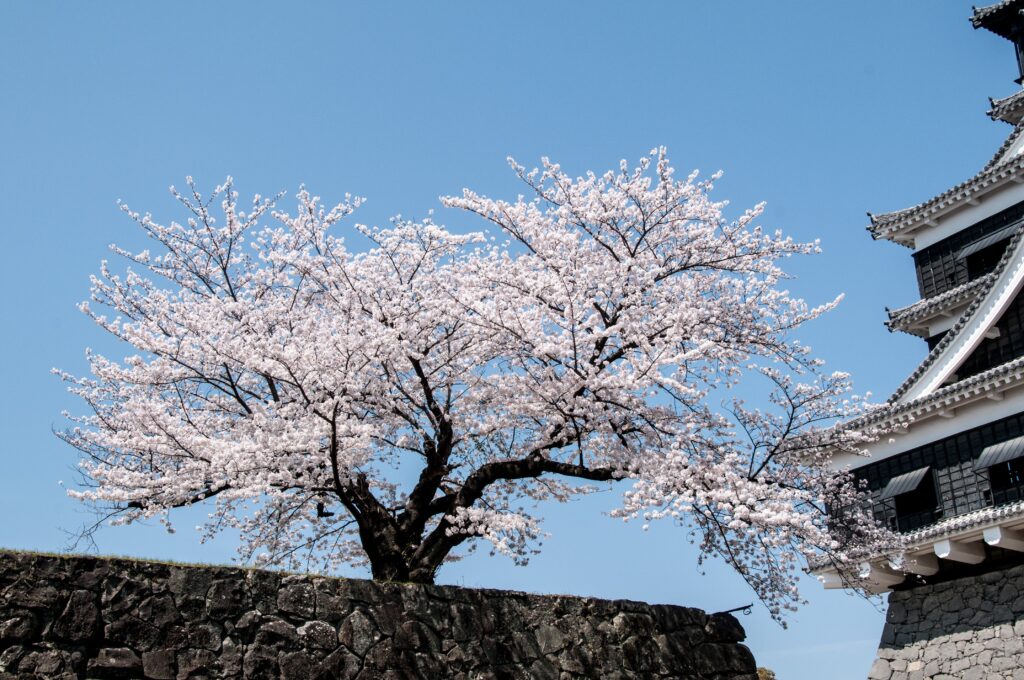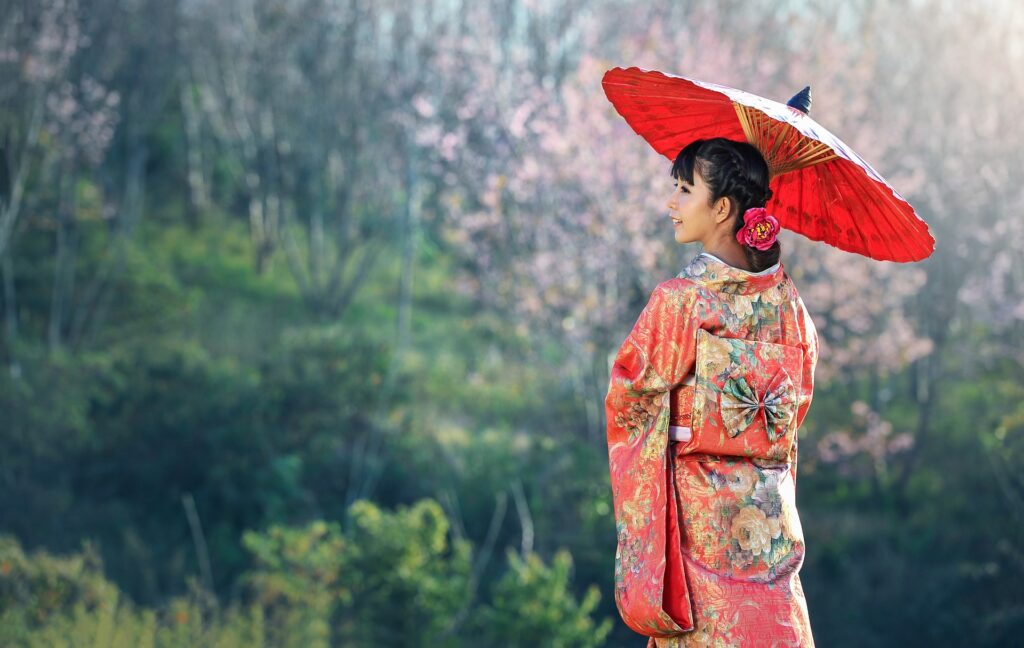Spring in Japan is a season of renewal, beauty, and vibrant festivals. The cherry blossoms bloom, painting the landscapes with Shades of pink and white, while the air is filled with a sense of new beginnings. It’s no wonder that many Japanese names are inspired by this enchanting season.
In this article, we’ll explore over 100+ Japanese names related to spring, perfect for boys, girls, and unisex options, along with their meanings.
Japanese names often carry deep meanings and are chosen not just for their sound but for the significance they hold. Names related to spring often bring to mind images of nature, renewal, and beauty. These names might be inspired by the breathtaking cherry blossoms, the gentle spring breeze, or the renewal of life that the season represents.
Whether you’re looking for a unique name for your baby or simply interested in the cultural significance of these names, this list offers a comprehensive look at names that capture the essence of spring in Japan.
The cultural depth of Japanese names is significant. Each name often has a beautiful meaning, usually derived from nature or qualities parents wish their children to embody. In spring, names often reflect the environment’s transformation—flowers blooming, the return of greenery, and a general sense of hope and new beginnings.
Reasons To Choose Japanese Names Related to Spring Season
Symbolism of Renewal:
Spring signifies new beginnings and renewal, which can be a powerful message to include in a child’s name. A name like Haru (春) directly translates to “spring,” signifying fresh starts and new life.
Cultural Connection:
Japanese names connect your child to the rich cultural heritage and traditions of Japan. Names like Sakura (桜), meaning “cherry blossom,” tie into Japan’s national flower and cultural celebrations such as Hanami.
Nature-Inspired:
Many spring-related names are inspired by nature, providing beautiful imagery and meanings. For instance, Hana (花) means “flower,” a direct nod to the blooming flora of spring.
Unique Sound:
Japanese names often have a unique and melodic sound that stands out in any cultural context. Names like Haruki (春樹), meaning “spring tree,” are both beautiful and distinctive.
Positive Connotations:
Names related to spring often have positive meanings such as growth, beauty, and vitality. A name like Yume (夢), meaning “dream,” evokes a sense of aspiration and wonder.
Versatility:
Many Japanese names are unisex, offering flexibility in naming. Names like Aoi (葵), meaning “hollyhock,” can be used for both boys and girls, making them versatile.
Trendsetting:
Japanese names are becoming increasingly popular globally, making them a trendy yet meaningful choice. Names like Ren (蓮), meaning “lotus,” are modern and sophisticated.
Connection to Festivals:
Spring in Japan is a time of festivals and celebrations, adding a festive and joyous connotation to the name. Names like Haruto (春人), meaning “spring person,” reflect the joy and festivity of the season.
Literary and Artistic Associations:
Many names are also used in Japanese literature and art, adding an artistic touch. Names like Hikaru (光), meaning “light,” appear in many cultural works, bringing a sense of brightness and creativity.
Timelessness:
The beauty of nature and the essence of spring are timeless, making these names evergreen. Names like Riku (陸), meaning “land,” are grounded and enduring.
Cultural Appreciation:
Using a Japanese name can show appreciation and respect for Japanese culture and its artistic sensibilities. Names like Sora (空), meaning “sky,” reflect a deep connection to the natural world.
Personalization:
Each name can be personalized with specific kanji characters, allowing for unique and tailored meanings. For example, Yua (結愛), meaning “binding love,” combines characters for bond and love, creating a deeply personal name.
Japanese Names Related to Spring and Their Meanings
Spring Inspired Japanese Names Male

- Haru (春) – “Spring”: Represents renewal and new beginnings.
- Haruaki (春明) – “Bright Spring”: Symbolizes a clear and bright new season.
- Haruto (春斗) – “Spring Person”: Denotes a person born in or connected to spring.
- Haruki (春樹) – “Spring Tree”: Evokes the image of trees blossoming in spring.
- Haruma (春馬) – “Spring Horse”: Combines the strength of a horse with the freshness of spring.
- Haruma (春真) – “True Spring”: Signifies the authenticity and purity of the season.
- Haruma (春間) – “Spring Interval”: Represents spring.
- Hayato (颯人) – “Brisk Person”: Evokes the swift and refreshing spring wind.
- Kaito (海翔) – “Ocean Soar”: Represents the boundless nature of the sea and sky.
- Katsumi (勝美) – “Beautiful Victory”: Combines beauty with success.
- Kazuki (和樹) – “Harmonious Tree”: Symbolizes a peaceful and balanced nature.
- Ren (蓮) – “Lotus”: Represents purity and rebirth.
- Sakurao (桜男) – “Cherry Blossom Man”: Connects to the iconic cherry blossoms.
- Shun (旬) – “Season”: Represents a particular season, often spring.
- Tsubasa (翼) – “Wings”: Symbolizes freedom and new beginnings.
- Yori (頼) – “Trust”: Denotes reliability and trustworthiness.
- Yūma (悠真) – “Calm Truth”: Combines tranquility with truthfulness.
- Yūto (優人) – “Gentle Person”: Represents kindness and gentleness.
- Yūta (優太) – “Great Friend”: Symbolizes great friendship and support.
- Koharu (小春) – “Little Spring”: Evokes a tender, gentle spring.
- Haruhiko (春彦) – “Spring Prince”: Denotes nobility in spring.
- Riku (陸) – “Land”: Represents stability and grounding.
- Aoi (青井) – “Blue”: Connects to the clear blue skies of spring.
- Asahi (旭) – “Morning Sun”: Symbolizes a new day and new beginnings.
- Daichi (大地) – “Great Land”: Evokes the vastness and fertility of the earth.
- Hibiki (響) – “Echo”: Represents the resonance and lasting impact of spring.
- Harunobu (春信) – “Spring Trust”: Combines trust with the season of spring.
- Kazuhiro (和弘) – “Harmonious Broad”: Symbolizes expansive harmony.
- Masaki (昌樹) – “Prosperous Tree”: Denotes growth and prosperity.
- Yamato (大和) – “Great Harmony”: Represents a peaceful and unified spirit.
Spring Inspired Japanese Names Girls

- Hana (花) – “Flower”: Symbolizes the beauty and transience of flowers.
- Sakura (桜) – “Cherry Blossom”: Represents the fleeting beauty of cherry blossoms.
- Haruko (春子) – “Spring Child”: Denotes a child born in or connected to spring.
- Haruna (春奈) – “Spring Vegetables”: Evokes the freshness and vitality of spring produce.
- Harumi (春美) – “Spring Beauty”: Combines the season with beauty.
- Saki (咲) – “Blossom”: Represents blooming and new growth.
- Yume (夢) – “Dream”: Evokes a sense of aspiration and wonder.
- Rin (凛) – “Dignified”: Symbolizes elegance and grace.
- Airi (愛莉) – “Love Jasmine”: Combines love with the delicate jasmine flower.
- Yua (結愛) – “Binding Love”: Represents strong and enduring love.
- Mei (芽衣) – “Sprout Garment”: Symbolizes new growth and freshness.
- Hinata (日向) – “Sunny Place”: Denotes warmth and brightness.
- Nozomi (望) – “Hope”: Represents hope and aspiration.
- Hikari (光) – “Light”: Symbolizes brightness and enlightenment.
- Yuka (優花) – “Gentle Flower”: Combines gentleness with floral beauty.
- Miyu (美優) – “Beautiful Kindness”: Represents beauty and kindness.
- Nanami (七海) – “Seven Seas”: Evokes the vastness and mystery of the seas.
- Riko (莉子) – “Jasmine Child”: Combines the delicate jasmine flower with childhood.
- Sumire (菫) – “Violet”: Represents modesty and sincerity.
- Koharu (小春) – “Little Spring”: Denotes a tender and gentle spring.
- Ayaka (彩花) – “Colorful Flower”: Evokes vibrant and colorful beauty.
- Yuriko (百合子) – “Lily Child”: Represents purity and innocence
- Reina (玲奈) – “Wise”: Symbolizes wisdom and clarity.
- Kaori (香) – “Fragrance”: Evokes the delicate and pleasant scents of spring.
- Tsukushi (つくし) – “Horsetail Plant”: Represents a unique and rare plant found in spring.
- Fumika (文香) – “Fragrant Writing”: Combines literary beauty with fragrance.
- Emi (恵美) – “Blessed Beauty”: Symbolizes beauty that is blessed and fortunate.
- Rina (里奈) – “Village Vegetables”: Represents a connection to nature and community.
- Kanna (栞奈) – “Bookmark Vegetable”: Combines the practicality of a bookmark with nature.
- Yuzuki (柚月) – “Citrus Moon”: Evokes a fresh and luminous image.
Japanese Names Related to Spring Season For Unisex
- Aoi (葵) – “Hollyhock”: Represents strength and resilience.
- Haru (春) – “Spring”: Symbolizes renewal and new beginnings.
- Sora (空) – “Sky”: Denotes the vastness and freedom of the sky.
- Hinata (日向) – “Sunny Place”: Represents warmth and brightness.
- Kai (海) – “Ocean”: Evokes the boundless and mysterious nature of the sea.
- Hikaru (光) – “Light”: Symbolizes brightness and enlightenment.
- Asahi (朝陽) – “Morning Sun”: Denotes a new day and new beginnings.
- Natsu (夏) – “Summer”: Represents warmth and vibrancy.
- Kyo (京) – “Capital”: Symbolizes importance and centrality.
- Mizuki (瑞希) – “Auspicious Hope”: Represents hope and good fortune.
- Riku (陸) – “Land”: Denotes stability and grounding.
- Nao (直) – “Honest”: Symbolizes sincerity and truthfulness.
- Suzu (鈴) – “Bell”: Represents clarity and resonance.
- Tomo (友) – “Friend”: Denotes friendship and companionship.
- Yuki (雪) – “Snow”: Represents purity and tranquility.
Unique Spring-Inspired Japanese Names
Let’s explore deeper into the names and their beautiful meanings to better understand their significance:
Japanese Names Related to Spring Season Male
- Haru (春) – “Spring”: Symbolizes renewal and new beginnings.
- Haruto (春斗) – “Spring Person”: Denotes a person born in or connected to spring.
- Haruki (春樹) – “Spring Tree”: Evokes the image of trees blossoming in spring.
- Hayato (颯人) – “Brisk Person”: Represents the swift and refreshing spring wind.
- Kazuki (和樹) – “Harmonious Tree”: Symbolizes a peaceful and balanced nature.
- Ren (蓮) – “Lotus”: Represents purity and rebirth.
- Shun (旬) – “Season”: Reflects the essence of a particular season, often spring.
- Tsubasa (翼) – “Wings”: Symbolizes freedom and new beginnings.
- Yūto (優人) – “Gentle Person”: Represents kindness and gentleness.
- Riku (陸) – “Land”: Denotes stability and grounding.
- Asahi (旭) – “Morning Sun”: Symbolizes a new day and new beginnings.
- Daichi (大地) – “Great Land”: Evokes the vastness and fertility of the earth.
- Koharu (小春) – “Little Spring”: Represents a tender and gentle spring.
- Masaki (昌樹) – “Prosperous Tree”: Denotes growth and prosperity.
- Yamato (大和) – “Great Harmony”: Symbolizes a peaceful and unified spirit.
Related Japanese Name Meaning Spring For Girls
- Hana (花) – “Flower”: Symbolizes the beauty and transience of flowers.
- Sakura (桜) – “Cherry Blossom”: Represents the fleeting beauty of cherry blossoms.
- Haruko (春子) – “Spring Child”: Denotes a child born in or connected to spring.
- Haruna (春奈) – “Spring Vegetables”: Evokes the freshness and vitality of spring produce.
- Saki (咲) – “Blossom”: Represents blooming and new growth.
- Yume (夢) – “Dream”: Evokes a sense of aspiration and wonder.
- Rin (凛) – “Dignified”: Symbolizes elegance and grace.
- Airi (愛莉) – “Love Jasmine”: Combines love with the delicate jasmine flower.
- Mei (芽衣) – “Sprout Garment”: Symbolizes new growth and freshness.
- Hinata (日向) – “Sunny Place”: Denotes warmth and brightness.
- Nozomi (望) – “Hope”: Represents hope and aspiration.
- Yuka (優花) – “Gentle Flower”: Combines gentleness with floral beauty.
- Miyu (美優) – “Beautiful Kindness”: Represents beauty and kindness.
- Riko (莉子) – “Jasmine Child”: Combines the delicate jasmine flower with childhood.
- Ayaka (彩花) – “Colorful Flower”: Evokes vibrant and colorful beauty.
For Unisex
- Aoi (葵) – “Hollyhock”: Represents strength and resilience.
- Haru (春) – “Spring”: Symbolizes renewal and new beginnings.
- Sora (空) – “Sky”: Denotes the vastness and freedom of the sky.
- Kai (海) – “Ocean”: Evokes the boundless and mysterious nature of the sea.
- Hikaru (光) – “Light”: Symbolizes brightness and enlightenment.
- Natsu (夏) – “Summer”: Represents warmth and vibrancy.
- Mizuki (瑞希) – “Auspicious Hope”: Represents hope and good fortune.
- Nao (直) – “Honest”: Symbolizes sincerity and truthfulness.
- Suzu (鈴) – “Bell”: Represents clarity and resonance.
- Tomo (友) – “Friend”: Denotes friendship and companionship.
- Ren (蓮) – “Lotus”: Symbolizes purity and rebirth.
- Rei (礼) – “Gratitude”: Symbolizes thankfulness and appreciation.
- Akira (明) – “Bright”: Represents clarity and enlightenment.
- Aki (秋) – “Autumn”: Symbolizes the beauty and maturity of the season.
Frequently Asked Questions ( FAQs )
What should I consider when choosing a Japanese name?
When choosing a Japanese name, consider the meaning behind the kanji characters, the sound of the name, and how it resonates with your family's cultural or personal values.
Can these names be used outside of Japan?
Yes, these names are increasingly popular worldwide and can be a unique and beautiful choice for anyone, regardless of cultural background.
Do these names have specific meanings associated with spring?
Yes, many of these names are directly inspired by elements of spring, such as blooming flowers, new growth, and the fresh start the season represents.
Are these names suitable for both boys and girls?
While some names are traditionally gender-specific, many Japanese names can be unisex, offering flexibility in their use.
How important are kanji characters in Japanese names?
Kanji characters are very important as they convey the meaning and significance of the name. Different kanji can drastically change the meaning, even if the pronunciation remains the same.
The Bottom Line
Choosing Japanese names inspired by spring not only brings a sense of freshness and new beginnings to your child’s identity but also fosters a connection with nature and cultural richness. Each name carries with it a story, a piece of tradition, and a profound beauty that transcends borders.
By choosing a name from this list, you are not only giving a name but also a legacy of the season that symbolizes life and rejuvenation.
As you explore these names, consider the meanings and how they resonate with your aspirations for your child. The names listed offer a range of qualities—strength, beauty, tranquillity, and hope—that can inspire and shape your child’s journey through life.
Whether you prefer a name that is purely Japanese or blends well in a multicultural context, these spring-inspired names are versatile and meaningful.
Incorporating such thoughtful and culturally rich names can also help in preserving and appreciating the nuances of the Japanese language and traditions. This can be particularly valuable in multicultural families or communities, where diverse cultural elements can be celebrated and passed on to future generations.
Choosing a Japanese name related to spring is more than just a nod to a beautiful season; it’s about embedding a sense of history, beauty, and meaning into your child’s life. Let this list guide you to find the perfect name that not only sounds beautiful but also carries a deep, resonant significance.
